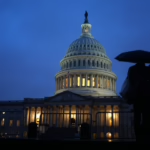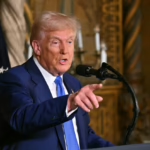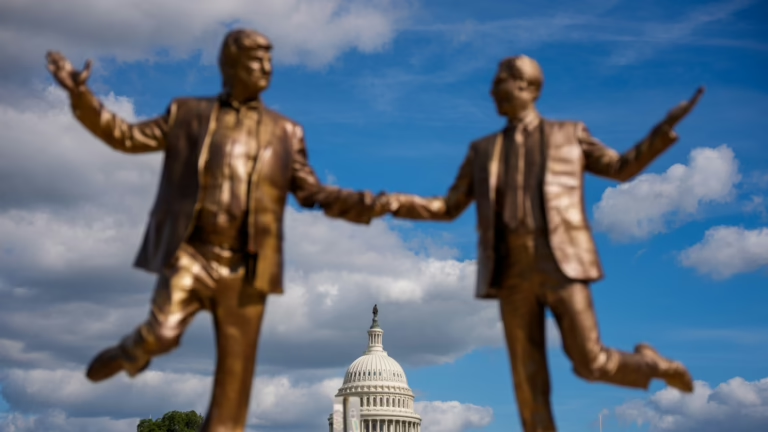After being unexpectedly removed in the early hours over a week ago, a provocative statue showing President Donald Trump skipping hand-in-hand with convicted sex offender Jeffrey Epstein has made its way back to Washington D.C.’s National Mall.
Initially unveiled on September 23 under the title Best Friends Forever, the artwork was later renamed Why Can’t We Be Friends?. The statue quickly drew attention for its bold placement in front of the U.S. Capitol and its plaque, which ironically commemorates “the enduring relationship between President Donald J. Trump and his ‘closest friend,’ Jeffrey Epstein.”
Trump has consistently minimized the extent of his association with Epstein, who died in custody in August 2019. He claims their relationship soured prior to Epstein’s 2006 indictment on charges of soliciting prostitution, partly due to Epstein recruiting staff, including young women, from Trump’s Mar-a-Lago spa.
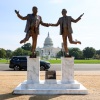
White House spokesperson Abigail Jackson told NPR last week, “It’s no secret that Epstein and Donald Trump were acquainted, but Trump expelled Epstein from his club for inappropriate behavior.”
The satirical statue was installed by The Secret Handshake, a group known for their politically charged anti-Trump sculptures displayed around D.C. over the past year. They had secured a permit from the National Park Service (NPS) to exhibit the statue until September 28. However, less than 24 hours after its debut, U.S. Park Police removed the statue before dawn on September 24.
A member of The Secret Handshake, speaking anonymously due to concerns about backlash from the Trump administration, informed NPR that the group was not given the required 24-hour written notice before the statue’s removal, as stipulated in their permit.
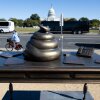
An official from the Department of the Interior explained to NPR that the statue was taken down because it violated the terms of the issued permit, though they did not clarify the specific reasons. The White House declined to comment on the statue’s removal.
After the statue was retrieved-damaged and with the figures torn from their bases-the group worked to restore it. Following a failed attempt, the statue Why Can’t We Be Friends? was reinstalled on the Mall this past Thursday.
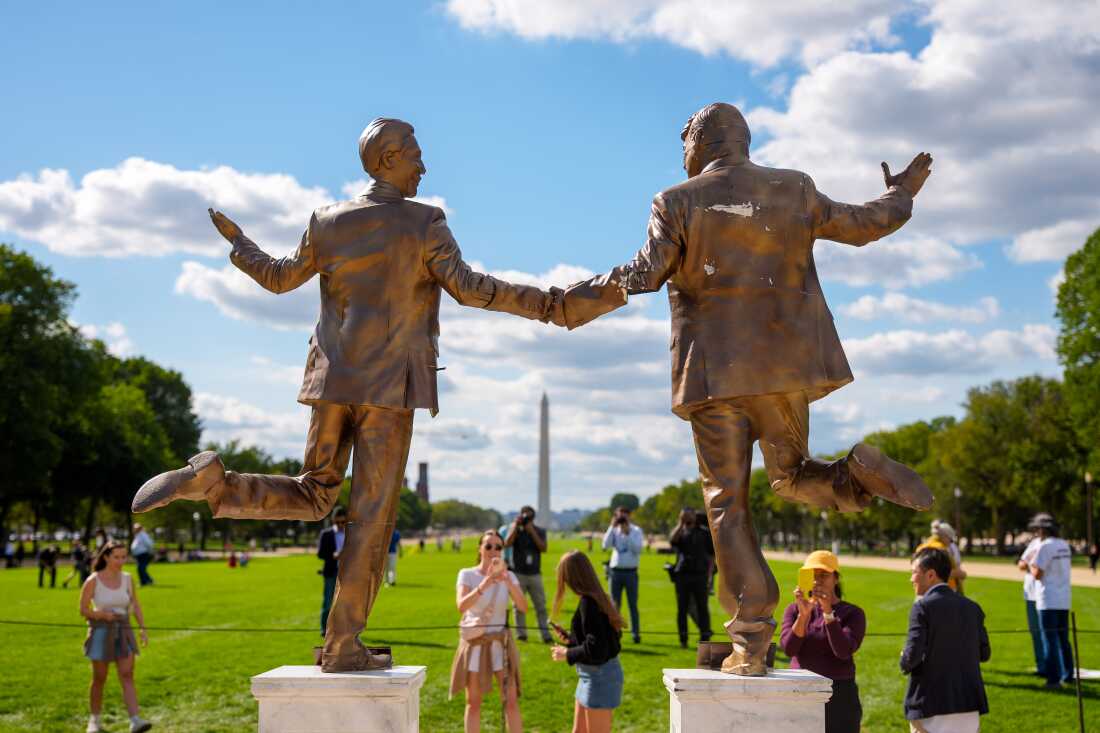
Visitors capture images of the statue on Thursday, with the Washington Monument visible in the background.
Andrew Harnik/Getty Images
hide caption
toggle caption
Andrew Harnik/Getty Images
One member of The Secret Handshake likened the statue’s return to the restoration of a toppled Confederate monument, stating via email to NPR, “Like a fallen statue of a Confederate general being reinstated in a public square, the Donald Trump-Jeffrey Epstein statue has triumphantly risen from the wreckage to stand once more on the National Mall.”
This marks the third permit granted to the group for this particular statue. The Secret Handshake revealed to NPR that after obtaining a second permit to reinstall the repaired statue, the National Park Service abruptly rescinded it by phone without providing any explanation, just as they were en route to the Mall. In response, the group made 3D-printable files of the statue publicly available online.
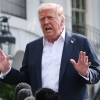
NPR reached out to the National Park Service for comment but had not received a response by the time of publication. The agency has been affected by the recent federal government shutdown, which has furloughed thousands of its employees.
The Trump administration remains under scrutiny over its handling of the so-called “Epstein files”-a collection of investigative documents related to Jeffrey Epstein. During his presidential campaign, Trump pledged to release these files if reelected, but has yet to do so. This delay has drawn criticism from Congress, with the House Oversight Committee issuing subpoenas and publishing thousands of pages of epstein-files/” title=”Elon Musk and Prince Andrew Spotlighted in Shocking New … File Revelations”>related documents as part of their inquiry.
A recent NPR/PBS News/Marist poll released on Wednesday revealed that 61% of Americans disapprove of Trump’s management of the Epstein files, while 77% support making the documents public, provided the victims’ identities are protected.


